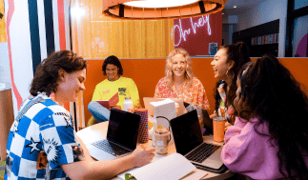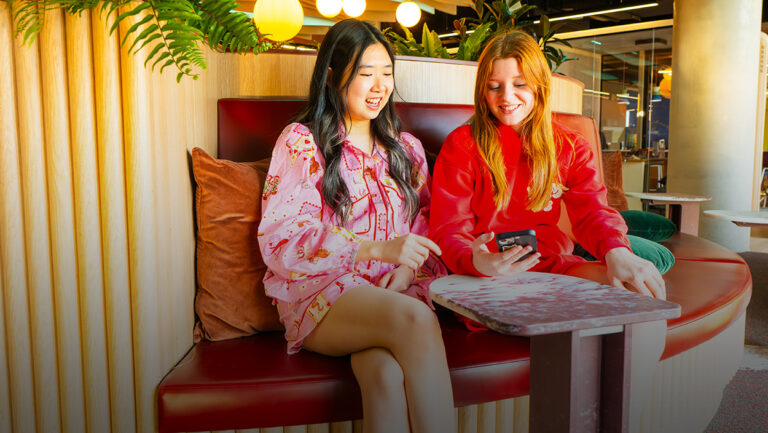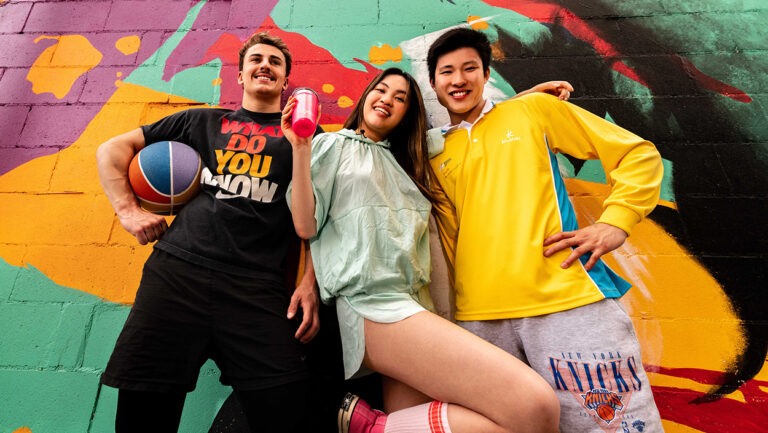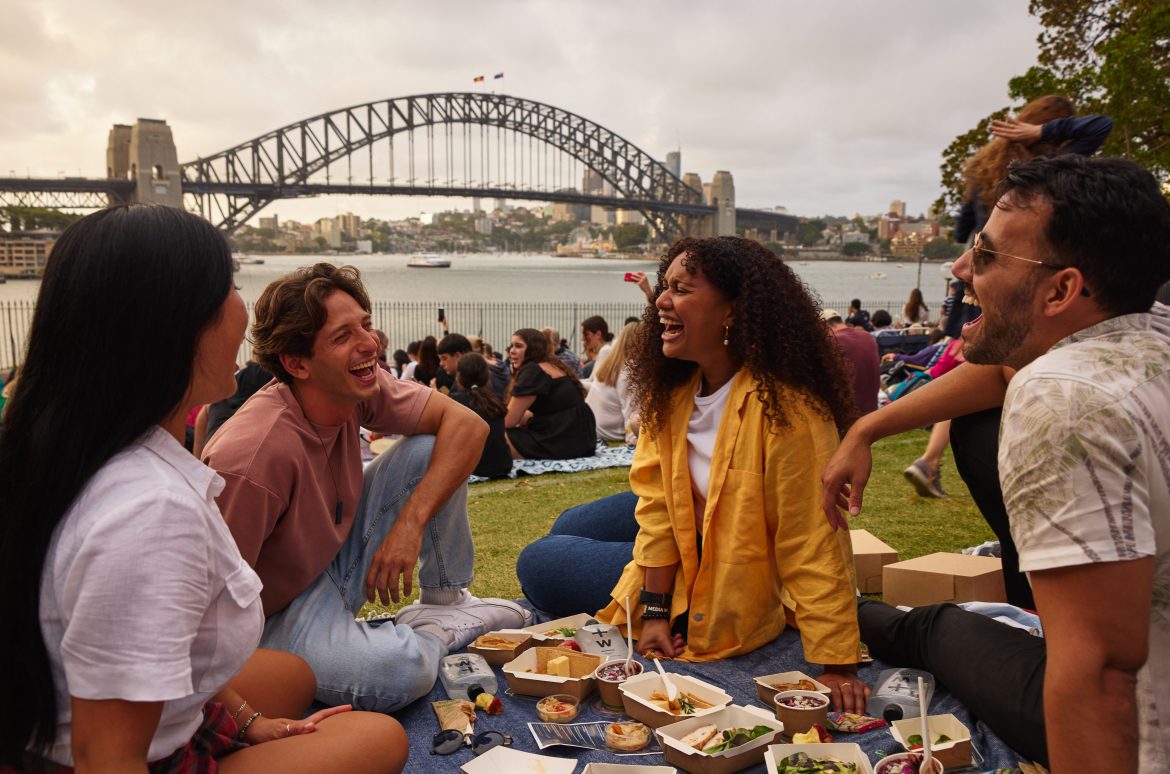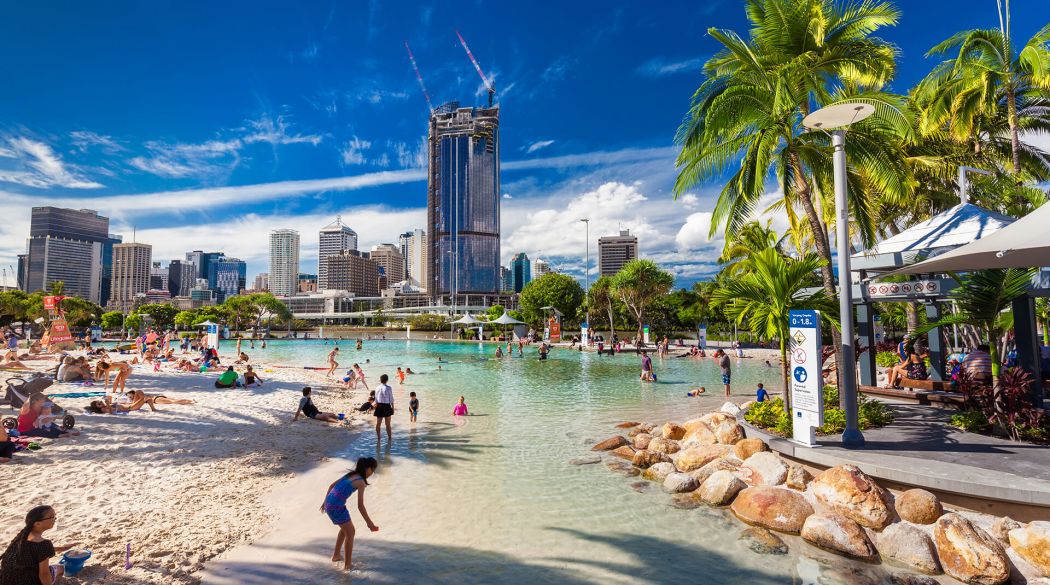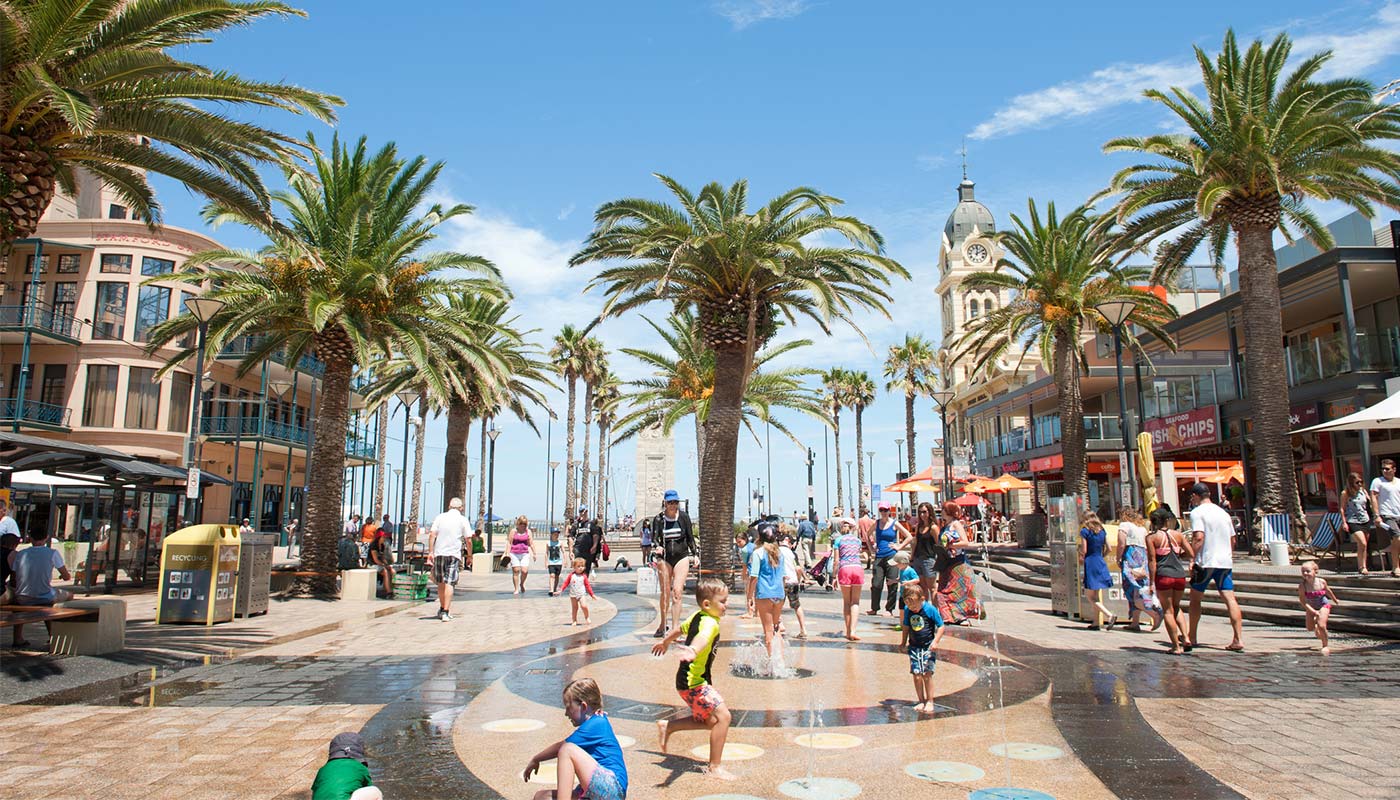Cost of living guide for students in Melbourne
Melbourne is a vibrant and multicultural city known for its artsy vibe, thriving café culture, exciting music scene, and world-class universities. It’s no wonder it is a popular destination for students seeking a top-notch education and a memorable student living experience. However, along with its many wonderful attractions, Melbourne also comes with a cost of living that students need to navigate. In this guide, we will delve into the various aspects of the cost of living for students in Melbourne, offering insights, tips, and tricks to help you stretch your dollar further.
Average monthly cost of living for students in Melbourne
The average cost of living in Melbourne for students ranges between AU$2350 and AU$2850 per month. This includes the cost of accommodation, food, transportation, and other expenses. If you are an international student, this cost may be slightly higher when you factor in items such as health insurance.
Accommodation
The cost of accommodation in Melbourne can vary depending on the type of housing and location. Living in the inner city is more expensive than living in more regional areas, but you have the advantage of being close to universities, restaurants, and entertainment – it’s a great vibe! A shared room in a student apartment can cost around AU$349-$399 average rent per week, a private room in a shared student apartment can cost around AU$405-$519 per week, and a private studio apartment can cost around AU$479-$719 per week. Student apartments at Scape include extras like unlimited Wi-Fi, air conditioning, utility bills, 24-7 security, furniture, and event programs in the pricing. With less to worry about, you can focus on your studies and enjoy a thriving social life!
Food
The cost of food in Melbourne can also vary depending on your eating habits. If you cook most of your own meals, you can expect to spend around AU$110-160 per week on groceries. If you eat out more often, you can expect to spend around AU$210-310 per week.
Transportation
The cost of transportation in Melbourne is relatively affordable. A monthly pass for public transportation costs around AU$105. You can also get around by walking, biking, or skateboarding.
Other expenses
Other expenses that students may incur include phone bills, entertainment, laundry costs and personal care items. These expenses can vary depending on your individual needs and habits.
Types of student accommodation and costs
Accommodation in Melbourne is your biggest student monthly living expense, so it’s important to understand your options and the pros and cons! Choosing where to dwell will have a big impact on the life you want to live and your everyday routine. Have a think about what you value as well as your wants and needs. For example, you might enjoy getting your coffee fix first thing before uni, getting your adrenaline pumping at the gym in the morning or prefer a sleep-in and being closer to uni for a quick commute. Whatever it is, try and find a spot that ticks most of your boxes when settling on a location. Let’s have a look at the different types of accommodation for students:
Purpose-built student accommodation – For example, living at Scape!
With purpose-built student accommodation you always get a great location, close to universities and amenities. The set weekly rate includes a load of extras, for example, at Scape, you get all utilities included (Wi-Fi, electricity, water), 24/7 security and access to specialist staff, furniture and a top-notch events program where you can experience so much of the city and student life. The average weekly rate may appear more expensive than other options, but when you consider the inclusions, it’s a smart choice.
Living in this type of accommodation also allows you to be part of a thriving community, so you remain engaged and inspired. A recent study into the wellbeing of Gen Z in Australia shows that staying at Scape has a positive impact on young Australian’s health and wellbeing compared to those who were not a Scape resident. Check out the full report here >
On-campus accommodation – For example, a dorm in your university
Staying on-campus generally means you will be very close to your chosen university; however, some universities also offer student villages that are further away with a shuttle service or public transport between them. While some universities offer private rooms, the majority offer shared spaces. Some universities have strict rules on visitors and partners, and some offer accommodation options designed specifically for couples.
Most on-campus accommodation costs include utility bills, and some colleges include meals as well (this is reflected in the price, which can be upwards of AU$740 per week).
Private rentals – For example, signing a lease with a real estate agent
Renting privately can be the cheapest option at face value, however, you need to factor in additional costs such as electricity, gas, Wi-Fi, and any other bills (like streaming accounts if you are part of a share house). You often need to provide your own furniture and appliances, which can be a heavy upfront cost and hassle to organize. The average weekly rent for a room in a share house in inner-city Melbourne is AU$290 per week (room only). If you are looking at renting your own private space, you would be looking at an average rent of AU$470 per week for a studio and AU$520 per week for a 1-bedroom apartment.
The rental market in Melbourne is very competitive, so it’s important to start your search early and be flexible with your move-in date. Most landlords will require a bond of four weeks’ rent, and you should read the lease carefully before signing it. If you need to source furniture, you can save a lot of cash by looking at second-hand pieces on platforms like Facebook Marketplace, Gumtree, or eBay.
Top things to consider when looking for a place to live:
– Think about what you love and need. Check for things like access to a laundry, rooftop, hang-out zones, study areas, gym or even pool amenities.
– Check that you are choosing a convenient location, close enough to uni, work and public transport. You can use Google Maps for route options to your daily commitments.
– Don’t forget about the great outdoors! Check for nearby spaces to keep fit and have fun, like parks or anywhere with greenery and space.
– Being close to restaurants, pubs, cafes and clubs can make a big difference to your social life. These venues are a great avenue to becoming a local and getting amongst the city buzz. How good is a short stroll home after a drink at your favourite pub?
– Don’t underestimate how the view from your window will make you feel… from city skylines to nature or shopping districts – choose what makes you feel good.
Other costs to consider
Deciding on accommodation is one thing, but you also need to consider the other smaller costs which add up over time.
Food
As mentioned, if you cook most of your own meals, you can expect to spend around AU$110-160 per week on groceries. Shopping at discount supermarkets like Aldi or Costco will help you save some money. The other key is to never grocery shop when you are hungry, otherwise you will likely impulse buy things that you don’t need. When planning your meals, see if you can make dinner with friends and split the cost of the groceries.
If you decide to eat out more often, you can expect to spend around AU$210-310 per week on food. The food scene in Melbourne is amazing, so it can be hard to resist. Small sacrifices like making your own coffee in the morning so you can save for a nice dinner out are worth considering! Water is free and so good for you, so take your reusable water bottle with you and save on things like soft drinks or juices. When dining out you can expect to spend an average of AAU$30-40 for a pub or café meal with a drink or AU$50-$60 per person at a mid-tier restaurant.
Transport
They key to getting around Melbourne is to have a myki card for the trains, trams and buses. A 2-hour fare is AU$5.30, while a daily fare is AU$10.60. If you are traveling regularly, a weekly Myki pass costs AU$53. In some cases you may be eligible for a concession pass, which gives you a 50% discount on these fares. You can check you eligibility for a concession pass here, and international students might also be eligible for the International Student Travel Pass.
Walking in Melbourne is a great way to get around, as is riding a bike. Hiring share e-bikes (eg. Lime Bikes) from the footpaths is also worthwhile if you don’t need to travel too far.
Health Insurance
When you apply for a visa as an international student, you’ll be required to take out Overseas Student Health Cover (OSHC), which is an insurance designed to help you cover the cost of medical bills in the case you become unwell or injured during your stay. This insurance is billed annually, and the average cost is around $AU480 for 12 months of minimum cover for a single person. The cost can fluctuate based on the level of cover, duration of the policy and the age and health of the individual student. You can find more detailed information on OSHC here.
Personal items
You will need to factor in a budget for spending on the bits and pieces you need on an ad hoc basis. This includes things like buying clothes, toiletries, make-up, laundry costs, cleaning supplies, gifts, any anything you might need for your studies. Some tips to help you save money on these items include:
– Taking advantage of student discounts. Many stores offer year-round discounts for students with a valid student ID. Check out UNiDAYS to see a range of stores that offer discounts.
– Buy or rent used textbooks for your studies. Often you don’t need to keep them, so remember to sell them at the end!
– Try to ditch your vices – smoking and vaping are bad for your health and expensive.
– Try not to take a loan out for anything other than your education. For student loans, find a reputable provider that specialises in this.
– Avoiding brand names can save you money. Generic items are usually very similar to the big brands but you can grab them at a reduced price.
Monthly bills
If you are not staying in purpose-built student accommodation or on-campus, you will likely have utility bills that you will have to pay. Electricity, gas, water and Wi-Fi costs can vary depending on usage and what provider you go with.
You will also likely want a mobile phone, and these can be billed monthly if you are on a plan. The other option is to get a prepaid plan, which can be a good option if you are not planning on using much data. Make sure you read the fine print before signing a plan to make sure you understand the terms and conditions.
Entertainment
For Scape residents, plenty of entertainment is included in the weekly rates. From in-house cinemas, modern gyms, cooking classes, sporting activities, creative classes and more. There is a full event calendar that also provides the opportunities for excursions to some of Melbourne’s best attractions.
If you are not staying at Scape, you will need to factor in a budget for entertainment. Cinema tickets in Melbourne generally cost between AU$19-$21 for students. Iconic Melbourne attractions like Luna Park cost AU$55 for unlimited rides which the Melbourne Zoo costs $31 if you have a valid student ID. You may want to consider hiring a car for the day to visit amazing destinations like the Macedon Ranges, Geelong or the Great Ocean Road.
We have complied a list of the top 10 night-time activities for students in Melbourne – check it out here >
For a more personalised estimate of your monthly budget needed for living in Melbourne, you can use this cost of living calculator.
